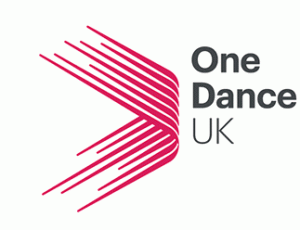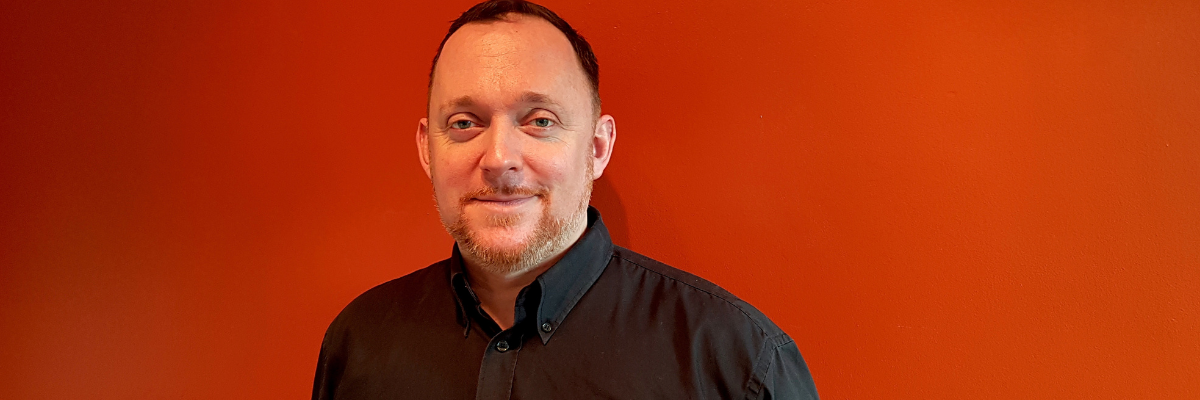Andrew Hurst (Cultural Policy and Management, 2012) Chief Executive Officer of One Dance UK was awarded an MBE for services to dance, particularly during the Covid-19 Response, in the 2021 New Year’s Honours. We caught up with Andrew to find out about his time at City and how his career led up to this achievement.
Could you tell me a bit about your time at City?
The thing I enjoyed most was taking on a research project for the first time. The campus and buildings always impress and are in a great location. I also particularly enjoyed Robert Hewison’s wit in his lectures, and some of the things he told us will stay with me forever.
How has you career developed since graduating?
I was managing a company in Leeds who were facing huge financial challenges when I started studying at City and went from there to the Royal Opera House before the end of my first year. This involved a lot of international travel and some adjusting to working in a very large organisation, so I took a break before doing the second year and my research project. Looking back now, my research had quite a big impact on my management career and continues to shape my work and interests right up to today. In 2016 I decided it was time to leave the Royal Opera House after 7 years in two roles, and I was about to take a leap into the freelance world when I was approached about my current role.
You recently received an MBE for Services to dance, particularly during the Covid-19 response. Could you tell us a bit about the work that led to you receiving this honour?
I am the Chief Executive of One Dance UK, a relatively new organisation which provides support services to those working in the dance sector across the UK. Advocacy is a hugely important part of our work which has been recognised in Parliament by EDM2171. We have built excellent working relationships with Government and officials. Our sector, like many others, has been impacted severely by the pandemic, and the high proportion of freelancers in the performing arts meant that regular and ongoing dialogue was, and is still, needed with Government in order to represent the needs of people working in our sector. Along with colleagues from other sector bodies, I have been in regular dialogue with various Ministers and officials several times a week since the onset of the pandemic. I was heavily involved in developing the official guidance which enabled performing artists to return to work, as well as securing unprecedented financial support in the form of the £1.57BN Cultural Recovery Fund.
What did this mean to you?
I have to say it made me feel slightly uncomfortable initially as One Dance UK hosts the Honours Advisory Group to try and ensure those doing amazing work right across the dance sector are recognised with National Honours. I have been involved in writing many nominations, some of which take many years to result in an honour. It is of course humbling to be recognised alongside so many exceptional individuals in our sector. I consider it a tribute to the amazing work of the entire team at One Dance UK, and our achievements over the past 5 years, especially at the end of a year when the sector we serve most needed representation at the highest level and the strengthening of our collective voice.
Aside from receiving this honour, what has been the most rewarding experience in your career to date?
 That’s a great question. Honestly, there are many, and it does depend on which career you are asking about, but I assume you mean in management – the tour for Carlos Acosta returning home to Havana with his second family, The Royal Ballet, in 2009 with two programmes in two different theatres and big screens outside for the crowds who couldn’t get a ticket, and sets and costumes arriving from Washington DC (which we were told at the time simply could not be done) stands out as a satisfying logistical and artistic achievement.
That’s a great question. Honestly, there are many, and it does depend on which career you are asking about, but I assume you mean in management – the tour for Carlos Acosta returning home to Havana with his second family, The Royal Ballet, in 2009 with two programmes in two different theatres and big screens outside for the crowds who couldn’t get a ticket, and sets and costumes arriving from Washington DC (which we were told at the time simply could not be done) stands out as a satisfying logistical and artistic achievement.
What has been the biggest challenge in your career?
Similar to the previous question, in terms of my management career, there are a couple that stand out. Turning around an important and well-established company – eliminating a projected six-figure deficit in six months and securing its long-term survival was an enormous challenge, and a very rewarding one. I do love a challenge. I took on my current role as a four-way merger seemed like a fascinating challenge that I couldn’t pass up, especially as I had previously worked with the Chair at the time who has a track record of delivering change. I had a feeling the right balance of challenge and trust between us existed to give us a really good chance of making it work.
This has been a particularly challenging year for the Arts and those in the industry. Do you have any advice for anyone in the industry who is struggling or anyone who might want to follow in your footsteps?
Don’t be afraid to ask for help. There are organisations like ours across most art forms that exist to provide support, and many people in positions like mine who are always willing to offer advice and support, as well as networks like City Alumni. There is financial support available, and any crisis also brings opportunities. One of the strengths of the creative workforce is its immense resilience, but also the vision, proactivity and ability to spot and take advantage of opportunities that creatives are so good at, makes them extremely entrepreneurial. We have already seen remarkable creative responses to one of the most challenging environments our sector has ever seen.

